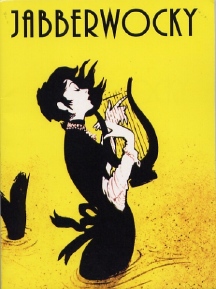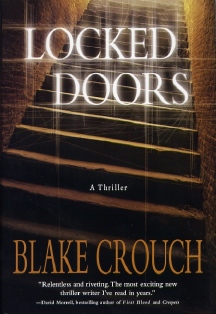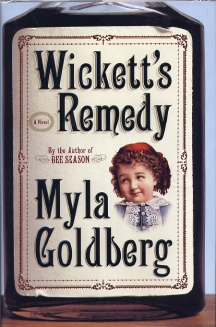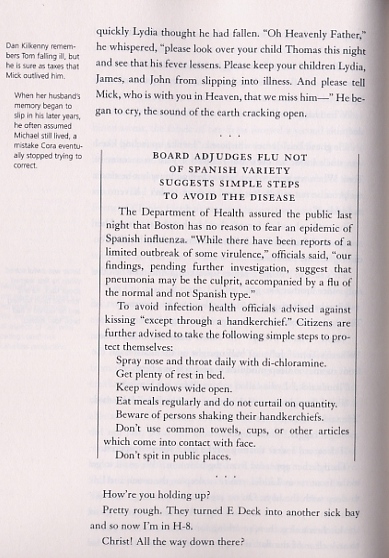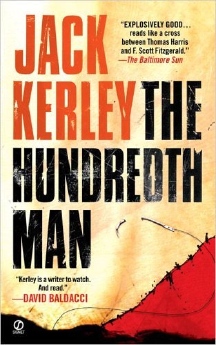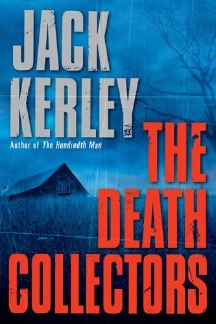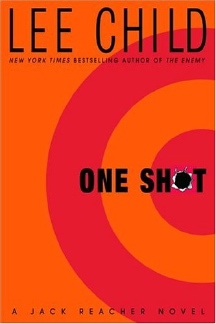|
|
|
This Just In...News from the Agony Column
|
09-16-05: Jabberwocky Edited by Sean Wallace |
|||
The
-Ical Approach
As long as you know Latin. Or have the wherewithal to read the translation here, "To whom do I give my new elegant little book?" Prime hopes that 'Jabberwocky' will be synonymous with what they call "the -ical approach; lyrical, whimsical, mythical, in all its forms, particularly short fiction, poetry and illustrative." Okey dokey. I'm ready for a bnit of the ol' -ical approach, especially when it comes in a nice, compact and classy little package like this ever-so-peculiar anthology from Prime. Please, please buy this and help it succeed. I mean, really. What more could we in the weird fiction world ask for than something truly, deeply, madly weird? 'Jabberwocky' is all of this and one essential thing more; 'effin' fantastic. What Sean Wallace has done is to delve into the strange world of quite lyrical, classical (there's an -ical they left out) weird fiction. Now I dont know about you, but way, way back in the 1970's I was one of those folks fortunate enough to buy the Bantam Adult Fantasy titles like 'The Doom that Came to Sarnath' and 'The Fungi from Yuggoth', both by H. P. Lovecraft from a book rack at a Lucky's grocery store in Covina, California. It was the final days of the initial flush of success that fantasy was enjoying as a result of the publication of 'The Lord of the Rings'. So here we are, more than 30 years later, enjoying the backwash from the success of 'The Lord of the Rings' as a movie that actually lives up to its source, and what more could we hope for than to find something like 'Jabberwocky' on the grocery store book racks. Now, I hasten to add that's rather unlikely. But we can dream, can't we, and if we dream, why not dream extravagantly, wildly, as if we've awakened without our alarums at 3:30 AM and decided to get up and write about weird fiction anthologies? Wait a second, here I am, more than 30 years later, doing just that. Uh oh. OK. So 'Jabberwocky' is a very strange anthology with lots of poetry, super-surreal short fiction, and material that stands firmly in the no-man's-land between. "In the corner, there are the skeletons of a hundred boys, frozen into art, crystalline and shimmering under their crust of ice." Catherynne M. Valente's 'The Ice Puzzle' should give you a good idea of what to expect here. And that is very strange, rather disturbing short stories so well written you'd be forgiven for thinking that someone forgot to insert the line breaks for the poem. Or poems, like 'Other Altars of the Heart' by Tim Pratt, that one might be forgiven for thinking are short stories that some typesetter decided should be read as poems. This is not to say that either work seems arbitrarily written, but rather to suggest that everything in 'Jabberwocky' exists in a sort of quantum state between poetry and fiction, between very weird fantasy and very strange literature. Everything here is NOT so serious as to have had a sense of humor surgically extracted. Rather, all these folks know precisely how outré their material is, and while they take it all quite seriously, they also know that it's not like, the end of the world. There's a nice understated sense of humor at work here as well, a sense of playfulness, of, "You feelin' lucky? I'll show some weird poetry." Yes a bit on the bleak side. But humor at its best is bleak, no? With a lineup that includes the likes of Gemma Files, Holly Phillips, Theodora Goss and many, many more this is the kind of anthology one hopes will become a regular event. And not just annual. They could bump this up to quarterly, and I'd be happy. There's not a poem or a short story in here that is not compelling and compellingly compact. The book itself is compellingly compact. Take a copy to your local coffee shop and sit there people watching, drinking your red-eye and reading a bit here and there between sips. Wear black, lots of black. Or your fast-food franchise work uniform. Or buy a fast food franchise work uniform and wear it. Stay up all night the night before to achieve the properly worn-out look. Then, voila, youre ready to read, re-read, or read aloud to your oh-so-lucky seated neighbors. "They gnash from the door, the slavering parent-golems, offering wire hangers and arsenic cakes with grimy grins, teeth sliding in their heads, grunting their nicotine paean in 4/4 time," writes Valente. "They lurch and leer, sewing their fingertips to my mouth. "Hush, child hush." Oh your seated neighbors will adore you! Wear black, lots of black. |
|
09-15-05: Blake Crouch Opens 'Locked Doors' |
|||
Being
Careful What You Wish For
It also definitely earned a sequel. So. Look, if you're kind of reader who enjoys being gripped by great writing, compelling characters and a bit, no make that a lot of the old ultra-violence, stop reading this article now unless you've read 'Desert Places'. You can get the mass-market paperback, and then prepare to read it in a day or two. Prepare to say "Yikes!" aloud a couple of time as Crouch relentlessly ups the ante with in-your-face scenes of...terror. We'll call it terror, because, well, we're wearing surgical gloves and don't want to get blood everywhere. But Crouch readers know better. And so does Crouch, who appears to have managed to up his own ante in 'Locked Doors', quite a feat given how god-awful-violent and tense 'Desert Places' was. Occupying a peculiar place of his own between Thomas Harris and Charlee Jacob, Crouch has cranked up the speed with which 'Locked Doors' unfolds. Pity me, just picked it up and now it appears I've got my weekend planned out for me, a weekend featuring non-stop violence, tension and terror. And little old me, sitting on the back porch saying "Yikes!" Crouch writes a nicely turned character, puts them front-and-center and then rains holy hell upon them until you think your head is going to explode. Or until you stop and take a shower, with the lights on and the doors and windows securely locked. Of course, Crouch does open some new doors in 'Locked Doors', taking a gleeful swipe at the true crime world. You know, you see those books piled on the end cap over at Bookshop Santa Cruz all the time. Big lurid titles. "BLOODY GUT-WRENCHING HORROR OF MOODALYN, TENNESSEE". Or something. And should you be of a churlish, uncharitable disposition, you might think, "Oh those true crime writers are a bit unpleasant, no?" There's a wannabe true crime writer in 'Locked Doors'. There are also interns and lots of people and you know, the deal with a Blake Crouch novel is that you never, never, never want to find yourself in a Blake Crouch novel. Nope, you want to be reading a Blake Crouch novel on the back porch, yelling, "Yikes!" Because if you're in a Blake Crouch novel, trust me on this one, "Yikes!" is not what you'll be yelling. And there wont be anyone to hear you. If you're in a Blake Crouch novel, there will just be you a lot of blood, implements, some sharp...some dull. Oops. And, of course, 'Locked Doors' |
|
09-14-05: Myla Goldberg Cures the World With 'Wickett's Remedy' |
||||||
Patent
Medicine for the Troubled Soul
Goldberg is the acclaimed author 'Bee Season', a sort of modern drama set around spelling bees. The movie based on 'Bee Season' is coming out in November, and advance word is very good, so look for a lot of attention to be focused on Goldberg's follow-up novel. To me, 'Wickett's Remedy' has so much going for it that it's one of those books I had to drag around from room to room, and that was before I noticed the whole bottle-on-the-cover setup. It mirrors one of my favorite covers, actually, that of Dennis McMillan's titanic and important anthology 'Measures of Poison'. Set during the 1918 influenza epidemic that killed more Americans than all twentieth century wars combined, 'Wickett's Remedy' delves into two stories. One of the stories follows Lydia, an Irish shopgirl who takes up with Henry Wickett, the shy son of a powerful Boston medical family and himself a medical student. But Henry punts medical school to create a patent medicine called 'Wickett's Remedy' just as the epidemic starts to wreak havoc and change the world and their world permanently. Lydia finds herself working in an experimental clinic that seeks to understand the influenza. By studying human subjects. The second story follows the fate of QD Soda, the distaff child of Wickett's remedy, stolen from Wickett by his partner, Quentin Driscoll. Driscoll transforms Wickett's formula into a soft drink empire. So far, one might be tempted to think we have a standard-issue historical novel with echoes of (thank your Rowrbazzle and BD, who reminded me of the title) T. C. Boyle's 'The Road to Wellville'. And I have to say that given the setup, the influenza epidemic and the soda empire, I'd already be there for this novel, which treats a number of subjects that I personally find hypnotically fascinating.
That is, the story is surrounded and illuminated by margin notes, something like footnotes without the specificity. Now readers will know that I love writers who use footnotes, and plenty of great writers do so, from Susanna Clarke to Jeff VanderMeer to Terry Pratchett. This sort of gloss on the text to me is really fascinating. It makes the book a lot more fun to read, and it adds wonderful, textured layers. As readers can see from the sample page I've scanned here, Goldberg is not averse to including such things as newspaper articles. She's also got lots of correspondence, reports and whatnot that give the novel a very nice meta-fictional feel. And all this in a book that barely gets past 300 pages, so that we dont need set aside a month to read it. You'll be hearing a lot about 'Wickett's Remedy'. The interesting architecture of the novel itself would justify the talk, as would the always-timely subject of epidemic diseases. (When is there not an epidemic of one kind or another?) But the release of the movie version of 'bee Season', based on the author's previous best-selling, acclaimed novel will push everything over the edge. At least one would hope so, because here is what seems to me to be a truly deserving work. The author is embarking on a national tour, starting next week in Philadelphia, and running for more than a month. Grueling stuff, that -- not that I would know from personal experience, mind you, only because I've been told, and heck, getting me on a plane is hard enough. So when Goldberg shows up in your neck of the woods, you might want to make sure you show up as well, and get your copy signed. Or not, who cares so long as you get your copy and get it read. This novel certainly sounds like a treat, the perfect remedy for whatever it is that annoys you, as long as it's not footnotes in the narrative. |
|
09-13-05: Jack Kerley's 'The Hundredth Man' |
||||||
| Mobile
Bureacracy by Terry Weyna
Carson Ryder is a detective whose star has risen very fast in the Mobile, Alabama Police Department. Because of his amazing success on a prior serial killer case, he and his partner Harry have been assigned to a new unit, the Psychopathological and Sociopathological Investigation Team – derisively nicknamed “Piss-It” for short. The new unit is supposed to have jurisdiction whenever a particularly ugly and insane-seeming murder comes along. Not too many cases meet those criteria, and the brass isnt too crazy about the idea in any event, especially with Carson – something of a loose cannon – at the helm. Even when a case clearly falling within the scope of PSITs mission comes along, Carson and Harry find themselves dealing more with the chain of command, the paperwork, and the useless details than with the murders themselves. Carson has a secret ingredient to add to the mix, his own special consultant. Add to that his attempts to help a new pathologist with talent to burn who seems intent on burning out, and its a compelling recipe.
Theres no question that Kerleys newest book, 'The Death Collectors' (Dutton ; June 25, 2005 ; $24.95), is high on my list of books to read next (an odd category of books in my house, encompassing approximately four shelves, similar to the infamous Rolling Shelves Rick gives us a glimpse of daily). With a bookstore gift certificate burning a hole in my wallet, Im guessing that this new mystery will soon adorn my study like a new jewel. |
|
09-12-05: Lee Child Gets 'One Shot' |
|||
|
Reaching for the New Jack Reacher Novel by Terry Weyna
One Shot (Delacorte Press, 376 pages, $25.00), this years entry in the series, is no more nor less incredible than Childs last few mysteries, but it does seem strangely divorced from the other Reacher books. Child disappointingly writes relatively little relating to Reachers time in the military, instead delivering a fairly straightforward account of the lone hero arriving in a small town to prevent an injustice. (Maybe I was just spoiled from last years, The Enemy (Dell, 496 pages, $7.99), a prequel to the series in which Reacher is an active member of the military in peacetime, acting as a military policeman in a baffling series of seemingly unrelated murders.) The excitement comes from a seemingly easily solved mystery. Only one man could have committed five murders on a sunny day in a heartland city. All of the evidence points to this former military sniper, a man with a history that says this is precisely something he could do without flinching. But the evidence against him seems almost too perfect, as if it were a deliberate frame. Why? What was the real purpose of these murders? Who really committed them? Needless to say, the actual bad guys are really, really bad. And needless to say, the local authorities cant or wont do anything about them, for various reasons. Its all up to Reacher, and the few individuals with whom he has formed bonds in the short time hes been in town. If murder and mayhem must result, its all in the cause of justice. And its all excellently told. |
